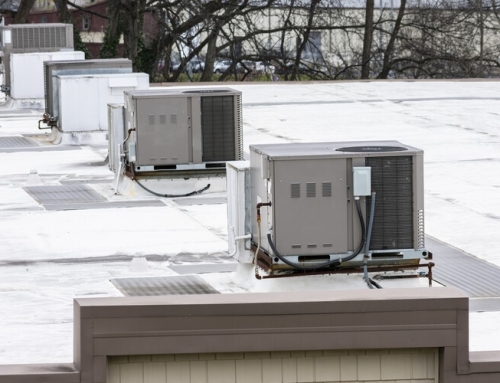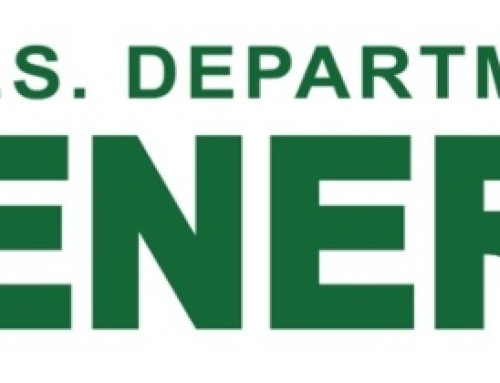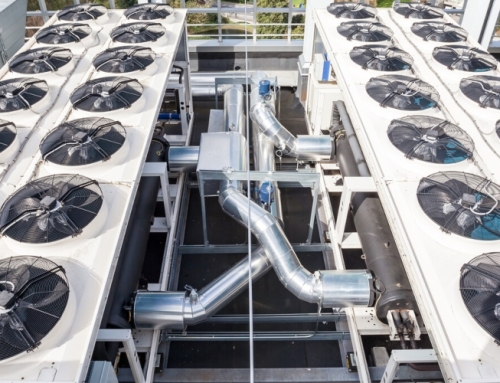With the heat of summer, maintaining the efficiency of your commercial facility’s HVAC (Heating, Ventilation, and Air Conditioning) unit becomes critical. The increased demand on the system to keep the indoor environment comfortable can lead to higher energy consumption, potential breakdowns, and increased maintenance costs if not managed properly. Here’s a comprehensive guide to ensure your HVAC system operates at peak efficiency during the summer months.
1. Regular Maintenance and Inspection
Scheduled Servicing: Routine maintenance should be scheduled at least twice a year, ideally before the summer and winter seasons. This includes checking refrigerant levels, inspecting and cleaning coils, and ensuring all components are functioning correctly.
Professional Inspection: Hire certified HVAC technicians to perform a thorough inspection. They can identify potential issues early, such as leaks, wear and tear on components, or any parts that need replacement.
2. Clean and Replace Filters
Regular Filter Replacement: Dirty filters can significantly reduce the efficiency of your HVAC system. Replace or clean filters every 1-3 months depending on usage and manufacturer recommendations.
High-Efficiency Filters: Consider using high-efficiency particulate air (HEPA) filters, especially in areas with high dust levels or pollutants, to improve air quality and system efficiency.
3. Optimize Thermostat Settings
Smart Thermostats: Upgrade to programmable or smart thermostats. These allow you to set different temperatures for various times of the day, ensuring the system isn’t working harder than necessary when the building is unoccupied.
Optimal Temperature Settings: Set the thermostat to a comfortable but energy-efficient temperature. The U.S. Department of Energy recommends setting your thermostat to 78°F (26°C) when the building is occupied and higher when unoccupied.
4. Improve Insulation and Seal Leaks
Proper Insulation: Ensure your facility is well-insulated. Good insulation keeps the cool air inside, reducing the workload on your HVAC system.
Seal Air Leaks: Check for and seal any leaks in windows, doors, and ductwork. Leaks force the system to work harder to maintain the desired temperature.
5. Upgrade to Energy-Efficient Systems
Energy Star Systems: If your HVAC system is old, consider upgrading to an Energy Star-rated system. These systems are designed to be more energy-efficient, which can save money in the long run.
Variable Speed Motors: Invest in HVAC systems with variable speed motors, which adjust their speed based on the cooling demand, thus conserving energy.
6. Utilize Zoning Systems
Zoning Systems: Implement zoning systems to cool only the areas that are in use. This is especially useful in large facilities where some areas may not need as much cooling as others.
Zone Control: Use zone control systems that allow for precise temperature settings in different areas, optimizing overall energy usage.
7. Regular Cleaning
Clean Coils: Dirty coils can impede airflow and reduce efficiency. Regularly clean the evaporator and condenser coils to ensure optimal performance.
Remove Obstructions: Ensure that the area around your HVAC unit is free from debris, plants, and other obstructions that can restrict airflow.
8. Monitor Energy Usage
Energy Audits: Conduct regular energy audits to understand how much energy your HVAC system uses and identify areas where efficiency can be improved.
Energy Management Systems: Invest in energy management systems that provide real-time monitoring and control over your facility’s energy use, helping to identify inefficiencies.
9. Educate Staff
Training: Educate your staff on the importance of HVAC maintenance and energy conservation practices. Simple actions like keeping doors and windows closed can significantly impact energy efficiency.
Reporting Issues: Encourage staff to report any irregularities or issues with the HVAC system promptly to address them before they escalate.
10. Emergency Preparedness
Backup Systems: Have backup systems or plans in place in case of HVAC failure, especially during peak summer months.
Maintenance Contracts: Consider maintenance contracts with HVAC service providers to ensure prompt and efficient repairs when needed.
Maintaining the efficiency of your commercial facility’s HVAC system during the summer is crucial for both comfort and cost-effectiveness. By implementing regular maintenance, optimizing thermostat settings, improving insulation, and educating your staff, you can ensure your HVAC system operates smoothly throughout the hot months. Investing in energy-efficient systems and technology can also provide long-term benefits and savings.
If all of this appears to be overwhelming, call VASEY today at (317) 873-2512. VASEY is your reliable partner dedicated to the well-being of your commercial facility.






